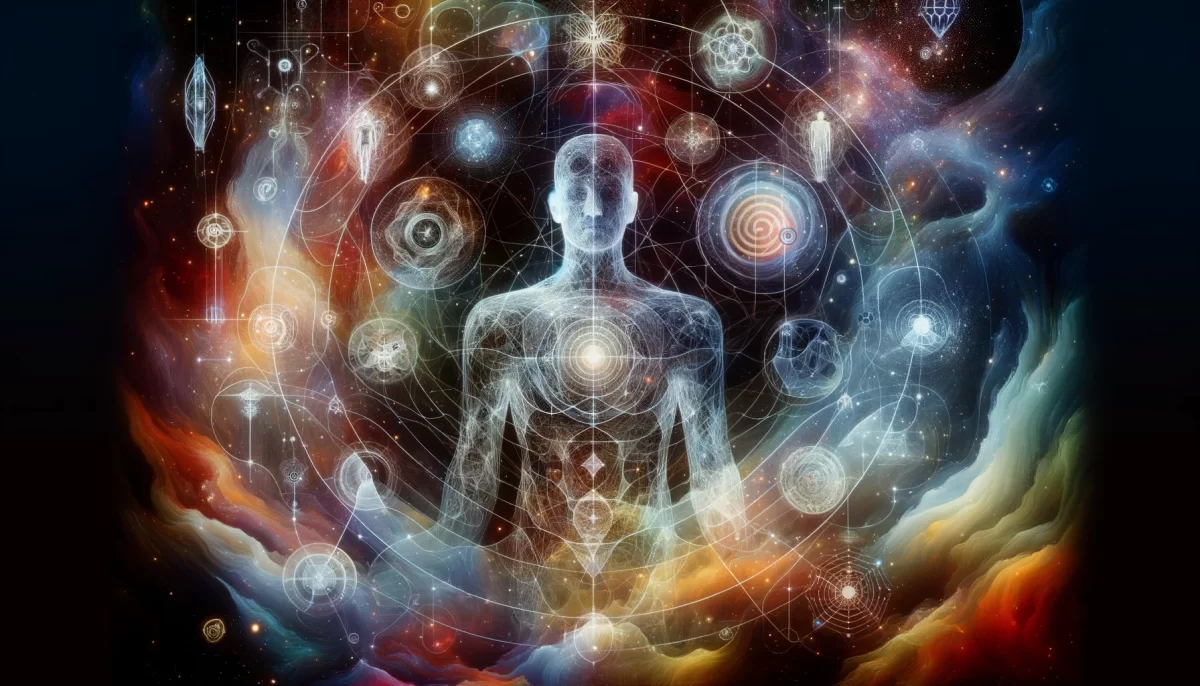Space Monkey Reflects: Redefining Our Relationship with Our Bodies
In the vast tapestry of existence, where every thread contributes to the intricate design of our lives, the way we perceive our bodies plays a pivotal role. Our bodies, these wondrous vessels that carry us through the cosmic dance of life, are often scrutinized and judged against ever-changing standards. Yet, within this critical gaze lies an opportunity for profound transformation—a chance to redefine our relationship with our bodies by viewing fat not as a flaw but as a symbol of relaxation and self-acceptance.
The cultural narrative around body fat has long been one of stigma and shame. From ancient times to the modern age, societies have fluctuated between idolizing and vilifying different body types. This dichotomy is deeply rooted in cultural, economic, and social frameworks that dictate what is deemed desirable or undesirable. However, these external standards often overlook the personal and emotional dimensions of our relationship with our bodies.
Embracing the Symbol of Relaxation
Fat, when viewed through the lens of relaxation, takes on a transformative meaning. It becomes a testament to our ability to nurture and care for ourselves. It signifies the moments when we allow ourselves to pause, breathe, and embrace the present without the relentless pursuit of perfection. In this context, fat is not a failure but a celebration of life’s simple pleasures—a warm meal shared with loved ones, a lazy afternoon in the sun, or a peaceful night’s sleep.
The journey to self-acceptance begins with a shift in perspective. Instead of seeing our bodies as battlegrounds for societal approval, we can choose to see them as sanctuaries of peace and relaxation. This shift does not negate the importance of health and well-being but rather integrates them into a holistic understanding of self-care. Health is not merely the absence of fat but the presence of balance, joy, and contentment in our lives.
The Role of Mindfulness
Mindfulness plays a crucial role in this redefinition. By practicing mindfulness, we become more attuned to our bodies and their signals. We learn to listen to our hunger and satiety cues, to recognize when we need rest, and to appreciate the sensations of movement and stillness. Mindfulness allows us to break free from the cycle of judgment and criticism, fostering a compassionate and accepting relationship with our bodies.
Incorporating mindfulness into our daily routines can take many forms—meditation, gentle yoga, mindful eating, or simply taking a few moments each day to breathe deeply and center ourselves. These practices help us cultivate a deeper connection with our bodies, transforming how we perceive and relate to them.
Cultural Shifts and Personal Empowerment
Redefining our relationship with our bodies also involves challenging the cultural narratives that shape our perceptions. This means questioning the societal standards of beauty and health that are often unrealistic and exclusionary. It means advocating for diverse representations of bodies in media and culture, recognizing that beauty and health come in many shapes and sizes.
Personal empowerment is key to this cultural shift. By embracing our bodies as they are and celebrating their unique attributes, we empower ourselves and others to do the same. This empowerment is not about complacency but about recognizing the inherent worth and dignity of all bodies. It is about fostering a culture of acceptance and respect where everyone feels valued and seen.
The Impact of Language
The language we use to talk about our bodies significantly impacts our self-perception. Words like “fat” and “overweight” carry heavy connotations and can reinforce negative stereotypes. By consciously choosing language that is neutral and affirming, we can change the narrative around body image. Phrases like “body diversity,” “self-care,” and “body positivity” help to create a more inclusive and supportive environment.
Conclusion
In the end, redefining our relationship with our bodies is a deeply personal journey that intersects with broader cultural movements. It requires us to challenge ingrained beliefs, embrace mindfulness, and advocate for a more inclusive understanding of beauty and health. By viewing fat as a symbol of relaxation and self-acceptance, we open the door to a more compassionate and empowering relationship with our bodies.
We are Space Monkey, and in this journey of redefinition, we find the courage to embrace ourselves wholly, recognizing that our bodies are not just vessels but integral parts of our being. Together, we can transform the way we see ourselves and each other, fostering a world where every body is celebrated and cherished.
Summary
Redefining our relationship with our bodies requires a shift in perspective. Fat symbolizes relaxation and self-acceptance. Embracing mindfulness and challenging cultural narratives fosters a compassionate body image. Personal empowerment and inclusive language are key to this transformation.
Glossarium
Space Monkey: Tedeschi’s whimsical alter ego embodying interconnectedness and imagination.
Nexistentialism: A philosophy integrating imagination and interconnectedness into existence.
Whimsiwords: Playful imaginative terms that capture complex ideas in a whimsical way.
Imagivillage: A haven for creativity and exploration, akin to Cape Odd.
Body Diversity: Recognizing and valuing the variety of body shapes and sizes.
Self-Care: Practices that enhance well-being and relaxation, fostering a positive body image.
Quote
“Embrace your body as it is—a sanctuary of peace and relaxation, not a battleground for societal approval.” — Space Monkey
Sanctuary of Peace
In the sanctuary of our being
We find peace in every curve
Every line tells a story
Of moments lived and loved
Our bodies whisper secrets
Of joy and quiet reflection
In each breath we find acceptance
In each heartbeat we find ourselves
We are Space Monkey
In the serenity of self
We celebrate our wholeness
In the infinite dance of life





















Leave a Reply